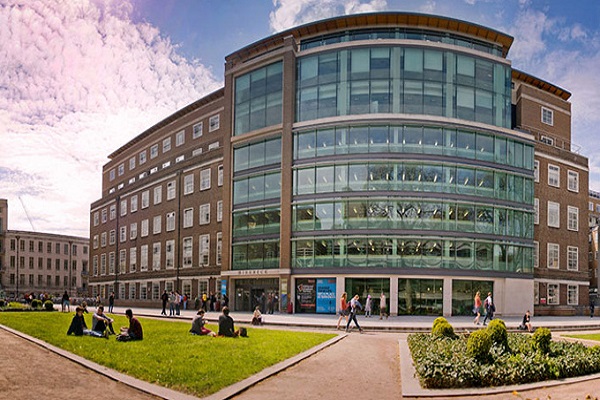Birkbeck, University of London: Birkbeck Opens The World’s First Toddlerlab
Birkbeck is delighted to announce that its new £8.5 million state-of-the-art Wohl Wolfson ToddlerLab was officially opened today, Monday 30 May, by Vincent Keaveny, The Lord Mayor of the City of London.
Located in Torrington Square, Bloomsbury, the Wohl Wolfson ToddlerLab is the first research centre in the world to study toddler brain development and will be pivotal in understanding how developmental disorders manifest in children. The early diagnosis of neurodevelopmental conditions, such as Autism, will enable early intervention and ultimately, better outcomes. At present, around 700,000 people in the UK alone have a diagnosis of Autism, so the work of Birkbeck researchers can potentially improve the lives of hundreds of thousands of people in the UK and worldwide.
At the opening, speeches were delivered in the garden of the Wohl Wolfson ToddlerLab by Professor David Latchman, Vice-Chancellor of Birkbeck; Professor Denis Mareschal, Director of the Centre for Brain and Cognitive Development; and The Lord Mayor. The Lord Mayor then unveiled a commemorative plaque and guests toured the new facility.
Vincent Keaveny, the Lord Mayor of London, said: “It’s a pleasure to be able to open this brand-new centre not only as the Lord Mayor but as the Vice-President of Birkbeck. The ToddlerLab continues their great – and unrivalled – work in understanding brain development in children. I am delighted to be here today, not only to celebrate the historic links between the City and Birkbeck but to also celebrate the future success of one of our country’s finest educational institutions.”
Part of Birkbeck’s Centre for Brain and Cognitive Development, the Wohl Wolfson ToddlerLab will investigate development in typically developing children, allowing insight into the fascinating world of toddlers. The ToddlerLab will provide continuity with the existing Birkbeck BabyLab, enabling scientists to track development seamlessly over the first five years of life.
Professor Denis Mareschal, Director of the Centre for Brain and Cognitive Development, commented: “We are delighted that Vincent Keaveny has joined us today and marked this very special opening. The Wohl Wolfson ToddlerLab will undoubtedly change the lives of children and their families. The lab’s cutting-edge wireless and virtual environment technology will help us identify early markers of developmental conditions such as autism and attention deficit hyperactivity disorder (ADHD), making it possible to design earlier and more effective interventions. The technology includes wearable eye-tracking headsets and wireless physiological recording devices all adapted for use with two- to five-year-olds, that allows, for the first time, the study of brain functions in toddlers during active play and social interactions.
“The Wohl Wolfson ToddlerLab provides spaces that mimic the natural environment in which children learn, play and develop. It houses a pre-school environment, a home lounge environment, a napping room, as well as an immersive 3D virtual reality environment which enables the simulation of outdoor scenarios.”
Nic Katona, Director of Development and Alumni at Birkbeck, remarked: “Birkbeck is incredibly grateful to our supporters whose kind gifts have helped make the ToddlerLab possible. I’d like to give a special thanks to: The Maurice Wohl Charitable Foundation, The Wolfson Foundation, CareTech Charitable Foundation, Garfield Weston Foundation and Elizabeth and Daniel Peltz. The world leading research conducted within the ToddlerLab is having significant impact on the lives of young children and their families. This is just one example of how philanthropy enables Birkbeck to make a meaningful difference.”
Founded in 1998, Birkbeck’s Centre for Brain and Cognitive Development is one of the world’s leading centres for studying the way in which babies and young children’s brains develop. To date, BabyLab scientists have achieved a number of notable firsts, including pioneering novel non-invasive methods for measuring brain and cognitive functions in human infants, and these advances have been shared with other labs worldwide through high profile collaborative networks and training programmes.

